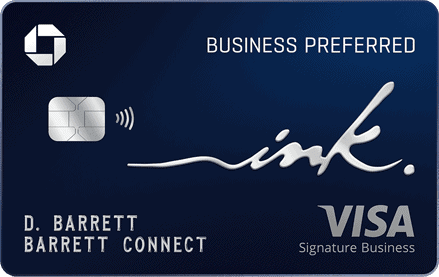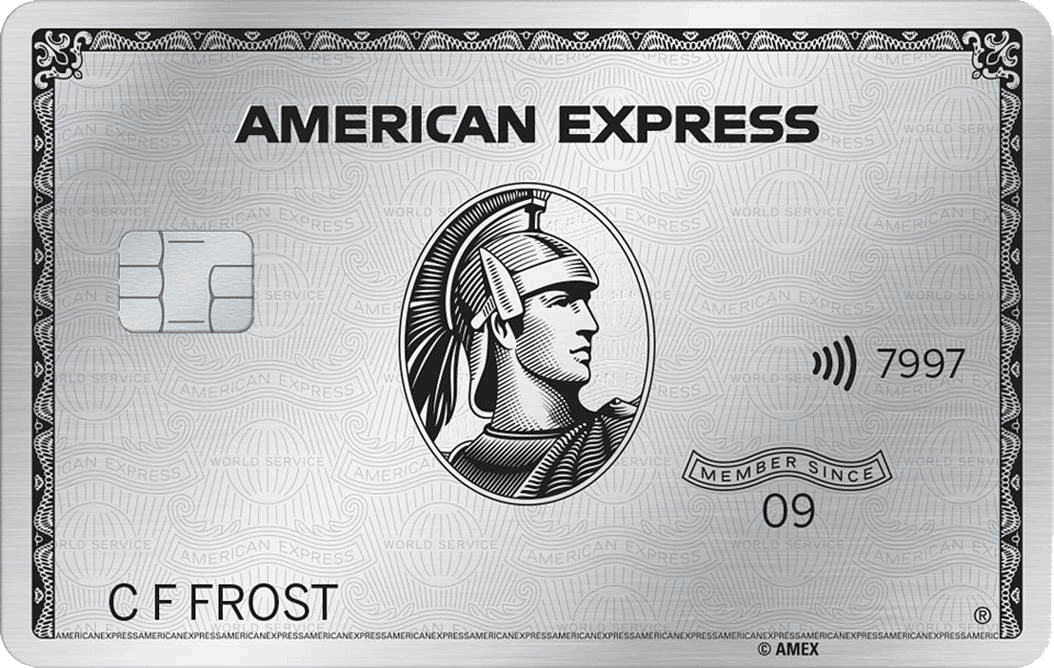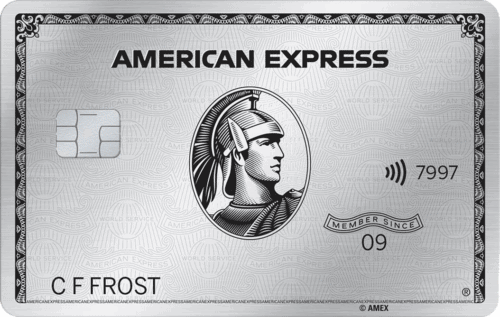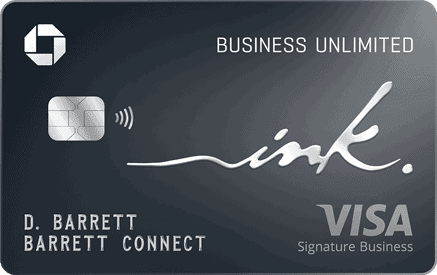
10xTravel is part of an affiliate sales network and receives compensation for sending traffic to partner sites, such as CreditCards.com. This compensation may impact how and where links appear on this site. This site does not include all financial companies or all available financial offers. Terms apply to American Express benefits and offers. Enrollment may be required for select American Express benefits and offers. Visit americanexpress.com to learn more. All values of Membership Rewards are assigned based on the assumption, experience and opinions of the 10xTravel team and represent an estimate and not an actual value of points. Estimated value is not a fixed value and may not be the typical value enjoyed by card members.
Note: Some of the offers mentioned below may have changed or may no longer be available. The content on this page is accurate as of the posting date; however, some of our partner offers may have expired. You can view current offers here.
All information about Chase Freedom Flex® has been collected independently by 10x Travel. Chase Freedom Flex® is no longer available through 10xtravel.com.
If you have the right credit card in your wallet, you can confidently decline add-on rental car insurance the next time you’re at the rental counter.
There is a range of credit cards that offer primary and secondary rental car insurance at no extra cost. As long as you use your card to pay the rental expenses, you and any other authorized drivers will be covered.
Having credit card rental insurance when traveling abroad is key to giving you peace of mind. If your credit card offers rental insurance, it will save you from spending between $15 to $30 per day on rental agency insurance plans. And if you hold a card that offers primary credit card rental insurance coverage, then your savings could be even greater.
Let’s explore the best credit cards for car rental insurance, as well as what to look out for when selecting credit card rental insurance policies.
What Is Car Rental Insurance?
Credit card rental insurance covers the costs of damage to or theft of your rental car, up to a specific dollar limit for a specific rental period.
For example, a credit card rental insurance policy may offer coverage for damages or theft of up to $75,000 for a maximum rental period of 31 days.
In certain cases, credit card rental insurance may also reimburse towing charges, administrative fees, and loss-of-use charges claimed by the rental car agency.
The conditions and limitations of credit card rental insurance can vary widely between card issuers. That’s why selecting the right card is key for reaping the financial benefits of credit card car rental insurance.
Benefits of Credit Cards with Car Rental Insurance
The main benefit of credit card rental car coverage is the cost savings.
With the best credit cards for car rental insurance, you won’t need to have separate auto insurance or a coverage plan from the rental agency. And given that credit card rental insurance is complimentary in most cases, that means that the annual fee on the card is the only cost you’ll need to pay.
This is at least the case if your credit card offers primary insurance coverage. When it comes to credit cards with primary rental car insurance, you won’t need to file a claim with a separate insurance provider before turning to your credit card rental insurance. Instead, your credit card issuer functions as your primary coverage provider, reimbursing eligible costs (as specified in the card issuer’s conditions and limitations).
The benefit of primary credit card rental insurance is that in the event of an accident, your premiums won’t increase, as there are no premiums associated with credit card rental insurance. Likewise, you won’t be liable to pay any deductibles with credit card rental insurance, which saves you even more money.

Key Features to Consider
When selecting the best credit card for car rentals, it’s crucial to compare the terms and conditions of each card provider.
Here are the main credit card rental insurance policy terms and limitations to make note of for comparison:
Coverage Limit
Coverage limits can vary between card issuers.
The maximum coverage limit you’ll find is between $75,000 and $100,000. Typically, most card issuers will reimburse you the actual cash value of the car.
Make sure you check what your card issuer offers as a coverage limit.
Types of Coverage
It’s key to understand the different types of credit card rental insurance. You have the choice between cards offering primary coverage or secondary coverage.
Secondary coverage typically assumes you have a separate rental car insurance plan or auto insurance that includes rental coverage. Secondary coverage kicks in only after you’ve filed a claim with your primary coverage provider and received compensation.
Secondary coverage will then reimburse eligible costs that aren’t covered by your primary coverage provider. Secondary coverage can still reimburse you for significant expenses, such as deductibles.
However, holding a credit card with secondary coverage will likely cost you more compared to holding a card with primary coverage. This is because your insurance premiums will typically rise after your primary coverage provider covers the costs of an accident. It also costs you more because you’re still using and paying for a separate insurance provider.
In contrast, if a card offers primary credit card rental insurance coverage, you can file a claim directly with your card issuer. In this case, they’re your primary coverage provider and will cover all eligible costs. This saves you from having two separate insurance plans and saves you money.
In some cases, secondary credit card rental insurance coverage can act as primary coverage. There are two particular instances in which this can happen.

First, if your standard auto insurance plan doesn’t provide rental coverage abroad, your secondary credit card rental insurance may act as primary coverage when used abroad.
Secondly, if you don’t have a separate auto insurance policy (if you don’t own a car, for example), secondary coverage will act as primary coverage, as it becomes the first provider you’ll file a claim with.
In addition to primary and secondary coverage, credit cards offer different types of rental car coverage based on qualifying scenarios. The two types you’ll run into are:
- Auto rental collision damage waiver (CDW)
- Loss damage waiver (LDW)
A CDW covers you for damages to a rental car due to a collision. In contrast, an LDW includes CDW coverage in addition to coverage for theft.
These two types of credit card rental insurance are often combined as one insurance benefit and referred to interchangeably. Nevertheless, it’s important to check a card’s terms and conditions to ensure both types of insurance are included.
Rental Period
In most cases, credit card rental insurance covers rental periods between 14 to 31 consecutive days.
If you need a longer period of coverage, then you’ll likely have to take out a separate insurance policy with a third-party provider or the rental agency.
Eligible Vehicles
It’s important to keep in mind that not all types of vehicles are covered.
Certain trucks, limousines, vans capable of carrying 10 or more passengers, vehicles of a certain weight, motorcycles, mopeds, open cargo bed vehicles, exotic and antique vehicles are normally excluded from credit card rental car insurance coverage.
Cars considered expensive are also often included. The exact definition of expensive can normally be found in your card issuer’s terms and conditions, where they will specify a dollar amount.

Does Your Credit Card’s Car Rental Insurance Cover Electric Vehicles?
With electric vehicles (EV) becoming ever-more popular, it’s natural to wonder whether they’re covered under your credit card car rental insurance policy.
Coverage for EV car rentals is highly dependent on the issuer. While some card issuers don’t explicitly exclude EV cars from coverage, they’re often excluded indirectly if they have a fair market value greater than $75,000.
Tesla’s Model 3—offered by Hertz—avoids this problem, as it has a value under the $75,000 limit. But this may not be the case for other EV car rentals.
Chase’s EV car rental coverage policy varies depending on the card you hold.
For example, the Chase Sapphire Reserve® doesn’t exclude EV car rentals in its Guide to Benefits. However, as the Sapphire Reserve’s auto collision damage waiver covers you up to a maximum of $75,000, not all EV cars will be eligible for coverage.
In contrast, the Chase Sapphire Preferred® Card, Ink Business Preferred® Credit Card, United℠ Explorer Card and Chase Freedom Flex® all exclude Teslas as they group them under “high-value motor vehicles or exotic car brands.” So while EV car rentals aren’t excluded, Teslas won’t be covered with these cards.
The Capital One Venture X Rewards Credit Card operates the same policy as the Chase Sapphire Reserve, limiting coverage to a maximum of $75,000. That means EV car rentals are included as long as they fall within the maximum coverage limit.
Amex also operates an indirect policy regarding EV car rentals. While there’s no explicit ban on them, car rental coverage is only up to a certain maximum limit, typically $75,000, such as on The Platinum Card® from American Express.
Likewise, keep in mind that EV car rentals may be excluded from coverage under certain circumstances, included in other parts of a card issuer’s insurance policy agreement. For instance, Amex doesn’t cover damage that results from an “electrical breakdown or failure unless such Damage results from a Theft Covered Event.”
What Are the Best Credit Cards for Car Rental Insurance?
Let’s have a look at the best credit cards for rental insurance, their terms and conditions and any other additional benefits they offer.
Chase Sapphire Reserve®
The Chase Sapphire Reserve® offers primary car rental insurance coverage in addition to an array of luxury travel perks.
Earn 100,000
bonus points + $500 Chase Travel℠ promo credit
after you spend $5,000 on purchases in the first 3 months from account opening.
Annual Fee: $795
Here’s an overview of its rental coverage policy:
| Chase Sapphire Reserve | |
|---|---|
| Coverage Limit | Up to $75,000 for theft or damages |
| Coverage Period | 31 days in the United States or abroad |
| Coverage Type | Primary |
| Covered Costs | • Theft and damages to the rental car • Loss-of-use charges • Towing charges to the nearest repair facility |
| Notable Exclusions | • Exotic*, expensive and antique automobiles (older than 20 years or those that haven’t been manufactured in 10 years or longer); vehicles with open cargo beds; trucks (excluding pickups); vans capable of carrying more than nine people; motorcycles, mopeds and motorbikes; limousines and recreational vehicles • Expenses reimbursed under your personal auto insurance policy, your employer or your employer’s insurance • Obligations you assume under any other agreement • Injury of anyone or anything inside or outside of the vehicle • Leases, mini leases and car-share services • Any violation of the auto rental agreement • Loss or theft of personal belongings |
*For Chase credit cards, the following vehicles are considered exotic or expensive: Alfa Romeo, Aston Martin, Bentley, Corvette, Ferrari, Jaguar, Lamborghini, Lotus, Maserati, Maybach, McLaren, Porsche, Rolls Royce and Tesla. However, select models of Audi, BMW, Cadillac, Infiniti, Land Rover and Lexus are covered.
To be eligible for Chase credit card rental insurance, you’ll need to ensure you do the following:
- Charge the full rental car cost to your card.
- Decline your rental agency’s insurance policy.
- Contact your benefits administrator within 60 days of damage or theft and submit required documentation within 100 days.
Chase is also one of the few providers that offers primary credit card rental insurance coverage for typically excluded countries such as Jamaica, Northern Ireland and Israel. This applies to all Chase cards with rental coverage.
On top of its rental car insurance benefits, the Chase Sapphire Reserve comes with a range of travel perks, such as:
- $300 annual statement credit for travel purchases
- The card comes with statement credit to help with the cost of Global Entry/TSA PreCheck
- Complimentary Priority Pass Select membership
- $1,200 worth of partner benefits
- Zero foreign transaction fees
- Strong travel and purchase protections
The annual fee on the card isn’t cheap, standing at $795. However, with such a wide range of perks and rewards, as well as primary rental car insurance, offsetting the annual fee becomes a lot easier.

Capital One Venture X Rewards Credit Card
The Capital One Venture X Rewards Credit Card comes with primary rental coverage and premium travel perks.
Capital One Venture X Rewards Credit Card
75,000
Venture Miles
after you spend $4,000 in purchases in the first 3 months.
Annual Fee: $395
Here’s a summary of its car rental insurance policy:
| Capital One Venture X Rewards Credit Card | |
|---|---|
| Coverage Limit | Up to the actual cash value of the rental car for theft or damages on vehicles with an original manufacturer’s warranty of up to $75,000 |
| Coverage Period | Up to 15 consecutive days in your country of residence or up to 31 days abroad |
| Coverage Type | Primary |
| Covered Costs | • Theft and damages to the rental car • Administrative fees • Loss-of-use charges • Towing charges to the nearest repair facility |
| Notable Exclusions | • Rental cars in Israel, Jamaica, the Republic of Ireland and Northern Ireland aren’t eligible for coverage • Exotic, expensive (value greater than $75,000) and antique automobiles (older than 20 years or those that haven’t been manufactured in 10 years or longer); vehicles with an open cargo bed; trucks (excluding pickups); vans capable of carrying more than nine people; motorcycles, mopeds and motorbikes; limousines and recreational vehicles • Any expenses reimbursed under your personal auto insurance policy, your employer or your employer’s insurance • Theft or damage due to intentional acts, or due to the driver being under the influence of alcohol, intoxicants or drugs • Wear and tear, gradual deterioration or mechanical breakdown • Items not installed by the original manufacturer • Damage due to off-road operation of the rental vehicle • Theft or damage due to hostility of any kind, such as war • Confiscation by authorities • Obligations you assume under any other agreement • Injury of anyone or anything inside or outside of the vehicle • Leases, mini leases and car-share services • Any violation of the auto rental agreement • Loss or theft of personal belongings |
To be eligible for Capital One credit card rental insurance, you’ll need to ensure you do the following:
- Charge the full rental car cost to your card.
- Decline your rental agency’s insurance policy.
- Contact your benefits administrator within 45 days of damage or theft.
The Venture X also comes with the following card perks:
- 10,000 bonus mile boost every year, starting on your first anniversary
- 10X miles on hotels & rental cars booked directly through Capital One Travel; 5X miles on flights booked directly through Capital One Travel; 2X miles on all other purchases
- Complimentary Priority Pass Select, Plaza Premium Group and Capital One Lounge access
- $300 annual statement credit for travel bookings made through Capital One Travel
- The card comes with statement credit to help with the cost of Global Entry/TSA PreCheck
For an annual fee of $395, the Venture X card has a lot to offer, especially when it comes to insuring your rental car.

Chase Sapphire Preferred® Card
The Chase Sapphire Preferred®Card offers almost identical credit card rental insurance as the Chase Sapphire Reserve, but for a much cheaper annual fee of $95.
Chase Sapphire Preferred® Card
75,000
bonus points
after you spend $5,000 on purchases in the first 3 months from account opening.
Annual Fee: $95
Here’s an overview of the card’s rental car insurance policy:
| Chase Sapphire Preferred Card | |
|---|---|
| Coverage Limit | Up to the actual cash value of the rental car for theft or damages |
| Coverage Period | 31 days in the U.S. or abroad |
| Coverage Type | Primary |
| Covered Costs | • Theft and damages to the rental car • Loss-of-use charges • Towing charges to the nearest repair facility |
| Notable Exclusions | • Exotic, expensive and antique automobiles; vehicles with an open cargo bed; trucks (excluding pickups); vans capable of carrying more than nine people; motorcycles, mopeds and motorbikes; limousines and recreational vehicles • Any expenses reimbursed under your personal auto insurance policy, your employer or your employer’s insurance • Obligations you assume under any other agreement • Injury of anyone or anything inside or outside of the vehicle • Leases, mini leases and car-share services • Any violation of the auto rental agreement • Loss or theft of personal belongings |
To be eligible for Chase credit card car rental insurance, you’ll need to ensure you do the following:
- Charge the full rental car cost to your card.
- Decline your rental agency’s insurance policy.
- Contact your benefits administrator within 60 days of damage or theft and submit required documentation within 100 days.
Aside from rental coverage, this card offers an annual point boost equivalent to 10% of total purchases made on your card within the previous year. It also offers competitive earning rates on a variety of bonus spending categories, zero foreign transaction fees as well as $200 worth of perks.

Ink Business Preferred® Card
The Ink Business Preferred® Card offers primary credit card rental insurance coverage when renting a car for business purposes, as well as robust earnings on business expenses.
Chase Ink Business Preferred® Credit Card
90,000
bonus points
after you spend $8,000 on purchases in the first 3 months after account opening.
Annual Fee: $95
Here’s a summary of its rental coverage policy:
| Ink Business Preferred Card | |
|---|---|
| Coverage Limit | Up to the actual cash value of the rental car for theft or damages |
| Coverage Period | 31 days in the U.S. or abroad |
| Coverage Type | Primary when: a. Renting for business purposes b. Renting for personal purposes outside of your country of residence c. If you don’t have a separate personal auto insurance plan In all other cases, insurance is secondary. |
| Covered Costs | • Theft and damages to the rental car • Loss-of-use charges • Towing charges to the nearest repair facility |
| Notable Exclusions | • Exotic, expensive and antique automobiles (older than 20 years or those that haven’t been manufactured in 10 years or longer); vehicles with an open cargo bed; trucks (excluding pickups); vans capable of carrying more than nine people; motorcycles, mopeds and motorbikes; limousines and recreational vehicles • Theft or damage due to intentional acts, or due to the driver(s) being under the influence of alcohol, intoxicants or drugs • Wear and tear, gradual deterioration or mechanical breakdown • Items not installed by the original manufacturer • Damage due to off-road operation of the rental vehicle • Theft or damage due to hostility of any kind, such as war • Confiscation by authorities • Any expenses reimbursed under your personal auto insurance policy, your employer or your employer’s insurance • Obligations you assume under any other agreement • Injury of anyone or anything inside or outside of the vehicle • Leases, mini leases and car-share services • Any violation of the auto rental agreement • Loss or theft of personal belongings |
To be eligible for coverage, you’ll need to ensure you do the following:
- Charge the full rental car cost to your card.
- Decline your rental agency’s insurance policy.
- Contact your benefits administrator within 60 days of damage or theft and submit required documentation within 100 days.
In addition to rental car insurance benefits, the Ink Business Preferred card offers:
- 3X points on the first $150,000 spent in combined purchases in the following categories each account anniversary year: shipping purchases, advertising purchases made with social media sites and search engines, internet, cable, phone services and travel (1X points thereafter)
- No foreign transaction fees
- Employee cards at no additional cost
For an annual fee of $95, this card offers excellent credit card rental insurance benefits as well as strong earnings on business expenditures.

The Platinum Card® from American Express
While not as lucrative as the credit card rental insurance offered by Chase or Capital One, The Platinum Card® from American Express still boasts premium insurance coverage on rental cars.
The Platinum Card® from American Express
You may be eligible for as high as 175,000
Membership Rewards® Points
after you spend $8,000 in eligible purchases on your new Card in your first 6 months of Card Membership. Welcome offers vary and you may not be eligible for an offer. Apply to know if you’re approved and find out your exact welcome offer amount – all with no credit score impact. If you’re approved and choose to accept the Card, your score may be impacted.
Annual Fee:
$695
Here’s an overview of the card’s rental car insurance policy:
| The Platinum Card from American Express | |
|---|---|
| Coverage Limit | • Secondary coverage of up to $75,000 for theft or damages • Primary coverage with a paid plan of up to $100,000 |
| Coverage Period | • 30 days in the U.S. or abroad (excluding Australia, Ireland, Israel, Italy, Jamaica and New Zealand) • For the primary coverage plan, coverage is for up to 42 consecutive days (up to 30 consecutive days for Washington State card members) |
| Coverage Type | • Secondary coverage • Ability to upgrade to primary coverage for a flat rate of $19.95 or $24.95 per rental period (not per day) depending on the coverage plan you choose ($15.95 or $17.95 for residents of California, and $12.25 or $15.25 for residents of Florida) |
| Covered Costs | • Theft and damages to the rental car • Loss-of-use charges • Towing charges to the nearest repair facility • Accidental death or dismemberment resulting directly from an accident in the rental car ($200,000 per card member and up to $20,000 per passenger and authorized driver) |
| Notable Exclusions | • Vehicles older than 20 years or that haven’t been manufactured in 10 years or longer, off-road vehicles, mopeds, motorcycles, cargo vans, custom vans, vans capable of seating more than eight passengers, trucks with a gross vehicle weight greater than 10,000 lbs and recreational vehicles • Theft or damage due to intentional acts, or due to the driver(s) being under the influence of alcohol, intoxicants or drugs • Wear and tear, gradual deterioration or mechanical breakdown • Items not installed by the original manufacturer • Damage due to off-road operation of the rental vehicle • Theft or damage due to hostility of any kind, such as war • Confiscation by authorities • Any expenses reimbursed under your personal auto insurance policy, your employer or your employer’s insurance • Obligations you assume under any other agreement • Leases, mini leases and car-share services • Any violation of the auto rental agreement |

To be eligible for coverage, you’ll need to ensure you do the following:
- Charge the full rental car cost to your card.
- Decline your rental agency’s insurance policy.
- Contact your benefit administrator within 30 days of damage or theft.
While an upgrade to primary coverage does incur an extra fee, the standout benefit of Amex rental car insurance is the inclusion of accidental death or dismemberment insurance. You can receive up to $200,000 per card member and up to $20,000 per passenger and authorized driver. Likewise, the flat fee you’ll pay for an upgrade to primary credit card rental insurance remains cheaper than coverage offered by rental agencies.
On top of its rental car benefits, the Platinum Card from American Express (rates and fees) offers:
- 5X points on eligible flights when booked via American Express Travel® or booked directly with the airline, on up to $500,000 in charges per calendar year
- 5X points on eligible prepaid hotel reservations when booked with American Express Travel®
- The card comes with statement credit to help with the cost of Global Entry/TSA PreCheck
- Up to $200 hotel credit, given in statement credits, on prepaid Fine Hotels + Resorts or The Hotel Collection bookings through American Express Travel®, (minimum hotel stay of two nights required)
- Up to $300 Equinox credit, given in statement credits
- Up to $199 per year in statement credits toward a CLEAR® Plus membership
- Up to $200 airline incidental fee credit, given in statement credits
- Up to $200 Uber Cash, issued in increments of $15 per month with a bonus $20 in December, for U.S. rides and eats. Add your Platinum Card® to your Uber account, and then pay with any AMEX card
- Up to $240 digital entertainment credit, issued in $20 monthly statement credits for eligible purchases (enrollment required)
- Complimentary premium status for various car rental companies (enrollment required)
- Access to the American Express Global Lounge Collection for eligible card members
- No foreign transaction fees
- Access to the American Express International Airline Program (for discounted airfares)
- Access to the Fine Hotels + Resort Collection for bookings made through American Express Travel®
- Marriott Bonvoy Gold Elite and Hilton Honors Gold status (enrollment required)
While the annual fee of $695 is significant, the combination of rewards, perks and credit card rental insurance can make offsetting the fee easy.
Conclusion
Next time you’re at the car rental counter, you can happily decline any additional insurance policies. With the right credit card, you’ll be covered as long as you charge the rental car cost to your card.
Chase and Capital One offer some of the best rental car insurance benefits available, with primary coverage included. Amex offers competitive secondary coverage, as well as primary coverage with higher claim limits for a small extra fee.
So, if you’re ready to start saving money on car rental insurance and earn points and miles while doing so, apply for credit cards that cover car rental insurance.
For Capital One products listed on this page, some of the above benefits are provided by Visa® or Mastercard® and may vary by product. See the respective Guide to Benefits for details, as terms and exclusions apply.
For American Express products listed on this page: Car Rental Loss and Damage Insurance can provide coverage up to $75,000 for theft of or damage to most rental vehicles when you use your eligible Card to reserve and pay for the entire eligible vehicle rental and decline the collision damage waiver or similar option offered by the Commercial Car Rental Company. This product provides secondary coverage and does not include liability coverage. Not all vehicle types or rentals are covered. Geographic restrictions apply. Eligibility and Benefit level varies by Card. Terms, Conditions and Limitations Apply. Please visit americanexpress.com/benefitsguide for more details. Underwritten by AMEX Assurance Company. Car Rental Loss or Damage Coverage is offered through American Express Travel® Related Services Company, Inc.
New to the world of points and miles? The Chase Sapphire Preferred® Card is the best card to start with.
With a bonus of 75,000 bonus points after you spend $5,000 on purchases in the first 3 months from account opening. , 5x points on travel booked through the Chase Travel Portal and 3x points on restaurants, streaming services, and online groceries (excluding Target, Walmart, and wholesale clubs), this card truly cannot be beat for getting started!
after you spend $5,000 on purchases in the first 3 months from account opening.
after you spend $4,000 in purchases in the first 3 months.
after you spend $5,000 on purchases in the first 3 months from account opening.
after you spend $8,000 on purchases in the first 3 months after account opening.
after you spend $8,000 in eligible purchases on your new Card in your first 6 months of Card Membership. Welcome offers vary and you may not be eligible for an offer. Apply to know if you’re approved and find out your exact welcome offer amount – all with no credit score impact. If you’re approved and choose to accept the Card, your score may be impacted.
Editors Note: Opinions expressed here are author’s alone, not those of any bank, credit card issuer, hotel, airline, or other entity. This content has not been reviewed, approved or otherwise endorsed by any of the entities included within the post.













